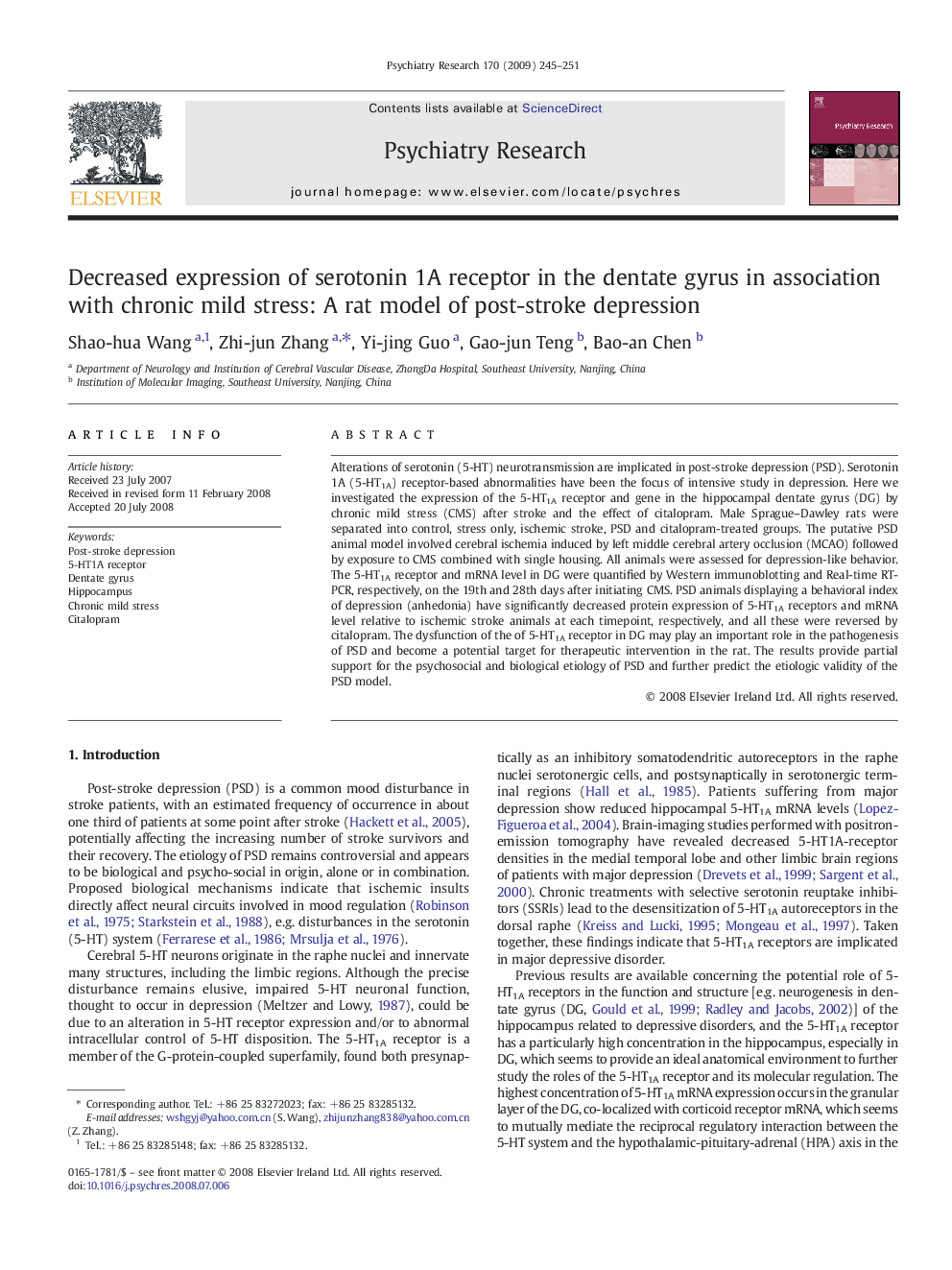| Article ID | Journal | Published Year | Pages | File Type |
|---|---|---|---|---|
| 332800 | Psychiatry Research | 2009 | 7 Pages |
Alterations of serotonin (5-HT) neurotransmission are implicated in post-stroke depression (PSD). Serotonin 1A (5-HT1A) receptor-based abnormalities have been the focus of intensive study in depression. Here we investigated the expression of the 5-HT1A receptor and gene in the hippocampal dentate gyrus (DG) by chronic mild stress (CMS) after stroke and the effect of citalopram. Male Sprague–Dawley rats were separated into control, stress only, ischemic stroke, PSD and citalopram-treated groups. The putative PSD animal model involved cerebral ischemia induced by left middle cerebral artery occlusion (MCAO) followed by exposure to CMS combined with single housing. All animals were assessed for depression-like behavior. The 5-HT1A receptor and mRNA level in DG were quantified by Western immunoblotting and Real-time RT-PCR, respectively, on the 19th and 28th days after initiating CMS. PSD animals displaying a behavioral index of depression (anhedonia) have significantly decreased protein expression of 5-HT1A receptors and mRNA level relative to ischemic stroke animals at each timepoint, respectively, and all these were reversed by citalopram. The dysfunction of the of 5-HT1A receptor in DG may play an important role in the pathogenesis of PSD and become a potential target for therapeutic intervention in the rat. The results provide partial support for the psychosocial and biological etiology of PSD and further predict the etiologic validity of the PSD model.
